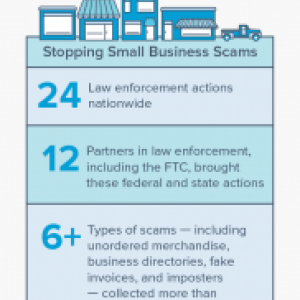Identity Theft Today – A Constantly Changing Landscape

by Marianne Cederlind Executive Vice President & Chief Business Banking Officer Mission Valley Bank
As cyber criminals get craftier, individuals need to arm themselves with facts on identity theft and take the necessary precautions to protect themselves.
Mobile phones and social media are the new frontier -- Fraudsters are expected to introduce as many as 1,000 different phone/social media scams this year, according to one expert. In fact, a social media identity may be more valuable to cyber criminals than credit cards since it offers them the opportunity to manipulate friends. Safety tip: Keep smart phone operating systems up-to-date. Use passwords to gain access to your phone and install apps that enable remote deletion of phone data if it is lost or stolen.
Mission Valley Bank Launches CardValet®

Mission Valley Bank is excited to introduce CardValet®, a mobile card management application that helps reduce account fraud by allowing cardholders to monitor accounts with their smartphone and control how, when and where their debit card is used.
CardValet was developed in partnership with Fiserv and is available in the Apple® App Store or Google® Play. Once CardValet is set up, cardholders have the ability to “turn off” their card when not in use, establish transaction spending limits and decline a transaction when the amount exceeds a predefined threshold.
FAKE EMAILS COULD COST YOU THOUSANDS

Think you got an email from a business you know? Scammers sometimes use emails that look legit to trick you into sending money to them. The email might say it’s from a real estate professional you’re working with, telling you there’s a last-minute change and you should now wire your closing costs to a different account. Or it could seem to be an email – with an invoice – from your utility company, telling you to wire payment. Whatever the story, if you wire that money, it goes to the scammer – and you may never see your money again. These scammers might get your information by hacking into a business. Once they know about you, they send an email that seems to come from the business, telling you where to send money. So, how can you spot these scams?
IRS, States and Tax Industry Renew Alert about Form W-2 Scam Targeting Payroll, Human Resource Departments

IRS -2017-10
Internal Revenue Service sign with a traffic signal in the foreground indicating a red light.
WASHINGTON – The Internal Revenue Service, state tax agencies and the tax industry today renewed their warning about an email scam that uses a corporate officer’s name to request employee Forms W-2 from company payroll or human resources departments.
Take Control with Online & Mobile Banking

Ever wonder how you can keep better track of your spending? Save money more easily? Bank more efficiently? Eliminate late-fee charges on your bills? Even help protect yourself from fraud? The solution for much of these is already right in your hands — Online and Mobile Banking.
These services give you the power to connect with your money anytime, anywhere, and offer tools and features to help you control your money more easily than ever before. You can:
Business Travelers Beware!

Courtesy of CYBERHEISTNEWS
There is a new spin on an existing phishing scam you need to be aware of. Bad guys are doing research on you personally using social media and find out where and when you (might) travel for business. Next, they craft an email especially for you with an airline reservation or receipt that looks just like the real thing, sent with a spoofed "From" email address that also looks legit.
CardValet® -- A Quick & Simple Solution

Last March, Mission Valley Bank launched CardValet®, a mobile card management application that helps reduce account fraud by allowing cardholders to monitor accounts with their smartphone and control how, when and where their debit card is used.
CardValet was developed in partnership with Fiserv and is available in the Apple® App Store or Google® Play. Once CardValet is set up, cardholders have the ability to “turn off” their card when not in use, establish transaction spending limits and decline a transaction when the amount exceeds a predefined threshold.



